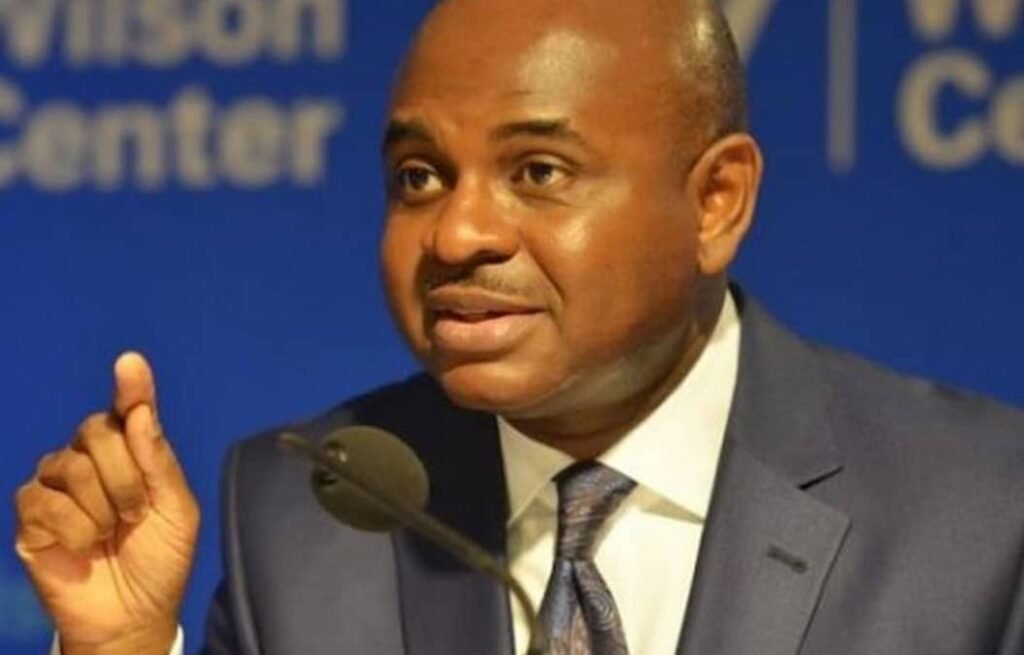From 2015 to 2021, Nigeria’s debt has grown at an unprecedented, alarming, and unsustainable rate, from $10.31b to $32.85b.
According to a former Deputy Governor of the Central Bank of Nigeria, CBN, Professor Kingsley Moghalu, the figure above represents two hundred and eighteen per cent escalation.
The expert who was saddened by the alarming debt rate said that the Muhammadu Buhari–led Federal Government has continued to pile up public debt at an alarming rate.
Regarding the country’s economic performance, Prof. Moghalu concluded that there’s nothing this government can brag about achieving.
He pointed out that the economic challenge is worsening due to Nigeria’s ever-increasing unemployment statistics. The country is spending so much money that should have been invested on development but is instead used in servicing the interest on our debt.
In a recent statement he issued, Moghalu, who was also a presidential candidate in the 2019 general election, his reactions were solely based on the debt status of Nigeria and the acceptance by the National assembly to okay the borrowing of 6.183 billion dollars.
The process was made possible through the Issuance of Eurobond in the International Capital Market to finance the 2021 budget.
2015 to 2021, Nigeria’s Debt Shoots up
He was quick to highlight some of the under performances of the government, especially in the area of infrastructure development, from 2015 to 2021, which they claim have swallowed a large chunk of the borrowed funds.
The CBN’s Ex-Deputy Governor advised that the country is now on a dangerous, debt-induced fiscal cliff, adding that the Government of Nigeria is mortgaging the future of our country’s youth.
He warned that Nigeria has to stop further borrowing and commence management of the available resources to “avoid a sovereign debt default or, at best, a costly restructuring. Further borrowing will lead to a disastrous debt bubble bust.”
Moghalu explained that within six years, total outstanding public debt stock soared by 173%, from N12.11tr to N33.1tr, meaning that over N3.6tr has been added to Nigeria’s public debt.

